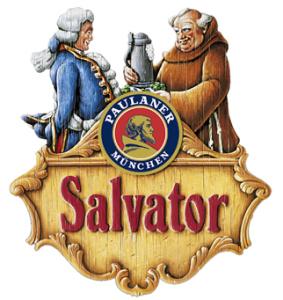 This time of year is special to Christians world-wide. From Fat Tuesday to Good Friday, Christians celebrate the season of Lent when Jesus went into the desert to fast and pray before his crucifixion. It is a serious time that is revered by both lay persons and those who have devoted themselves to the service of the Lord.
This time of year is special to Christians world-wide. From Fat Tuesday to Good Friday, Christians celebrate the season of Lent when Jesus went into the desert to fast and pray before his crucifixion. It is a serious time that is revered by both lay persons and those who have devoted themselves to the service of the Lord.
So, what is the connection to beer? It seems that the German Paulaner monks at Cloister Neudeck ob der Au in Munich took their fasting serious during Lent and ate no solid food during the Holy time. Therefore, instead of making bread with their grain they brewed beer – what they called liquid bread to sustain them through the long season.
The beer they brewed has gone by several names including Fastenbier or Starkbier it is more commonly known as Doppelbock. According to the Beer Judge Certification Program guidelines, this brew should be very rich and malty with a touch of chocolate but still crisp and smooth. Doppelbock, literally double bock, is generally relatively high in alcohol at between 7 and 12 percent. In the higher alcohol versions, there is generally a mild burn from the alcohol.
This classic Bavarian style has a long and checkered history. Depending on which documents you believe, the style began somewhere between 1630 and 1670. Being men of the cloth, the monks were not so sure that they should be drinking such an intoxicating and delicious brew during Lent, typically a time of denial. So, they sought guidance from their earthly leader, the Holy Father himself in Rome.
The monks dispatched a keg of their brew to Rome, but since the journey was long and wound through the Alps and the hot plains, of Italy the beer got warmed in the sun and shaken by the road over a period of several weeks. When it arrived in Rome it had been through quite an ordeal and was less than ideal for consumption. The pope took one taste of the brew and decided that such a vile brew would be fitting as a drink during a time when the monks were supposed to be denying themselves earthly pleasures.
But, monks are not the only ones to have used the brew as a means of fasting. A few years ago a J. Wilson approached an Iowa brewery and asked them to create a Doppelbock for him. His goal was to imitate the Paulaner monks and go on a liquid diet for the entire Lenten season. Wilson drank four beers on weekdays and five on weekends along with water and ate nothing during his fast. At the end of his Lenten experiment he was 25 pounds lighter and reported very few ill effects. However, in an interview for Men’s Health magazine, Wilson said he would not recommend the diet as a healthy way to lose weight.
The monks of eventually named their brew Salvator after the savior. In deference to that original brew, when imitators began making their own versions, most were named with the –ator ending to the appellation. Commercial versions that are currently available include Spaten Optimator and Ayinger Celebrator. Recently the style was reproduced in Jacksonville by Intuition Ale Works as a special beer for the brewery’s Mug Club.
